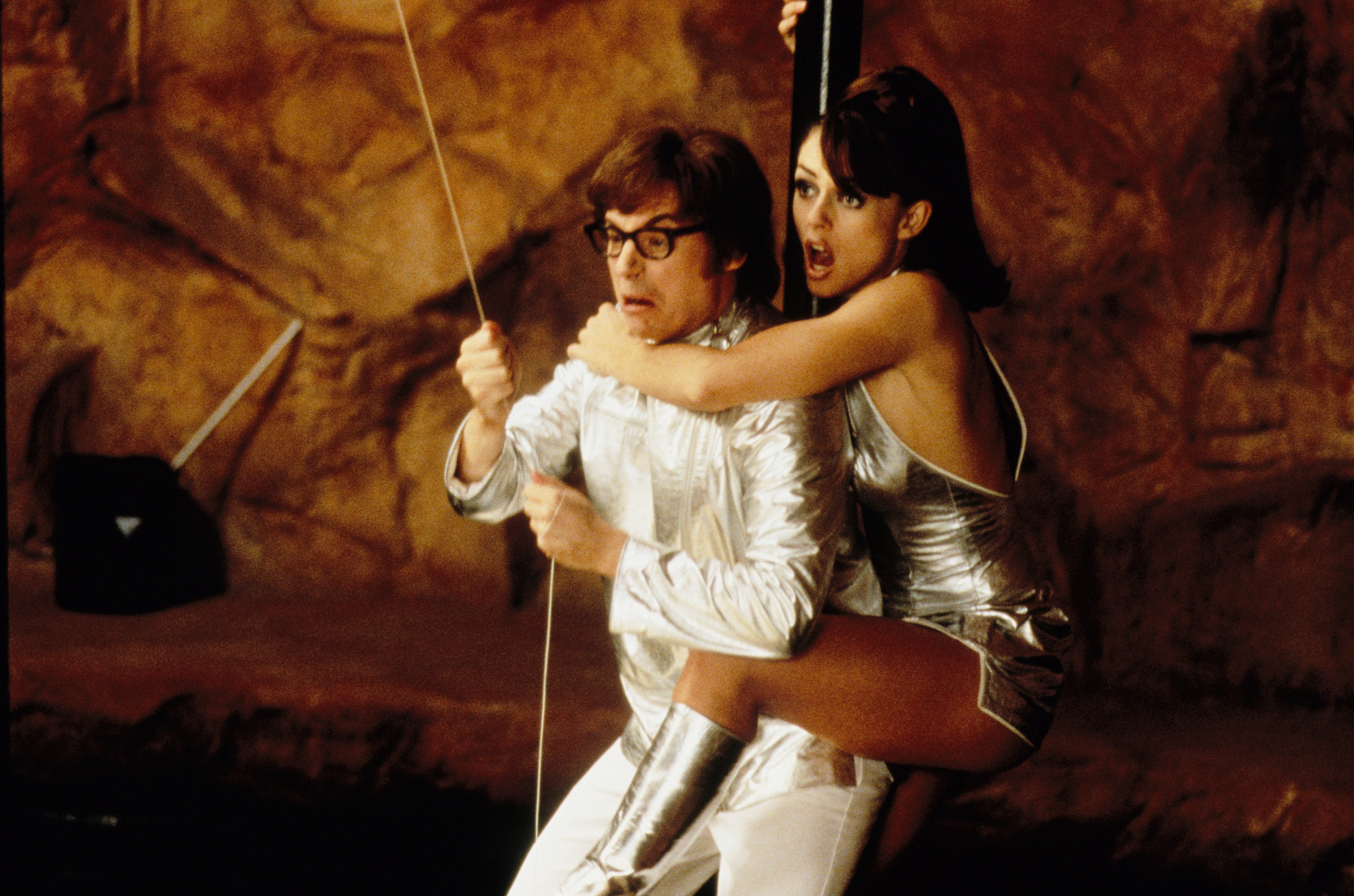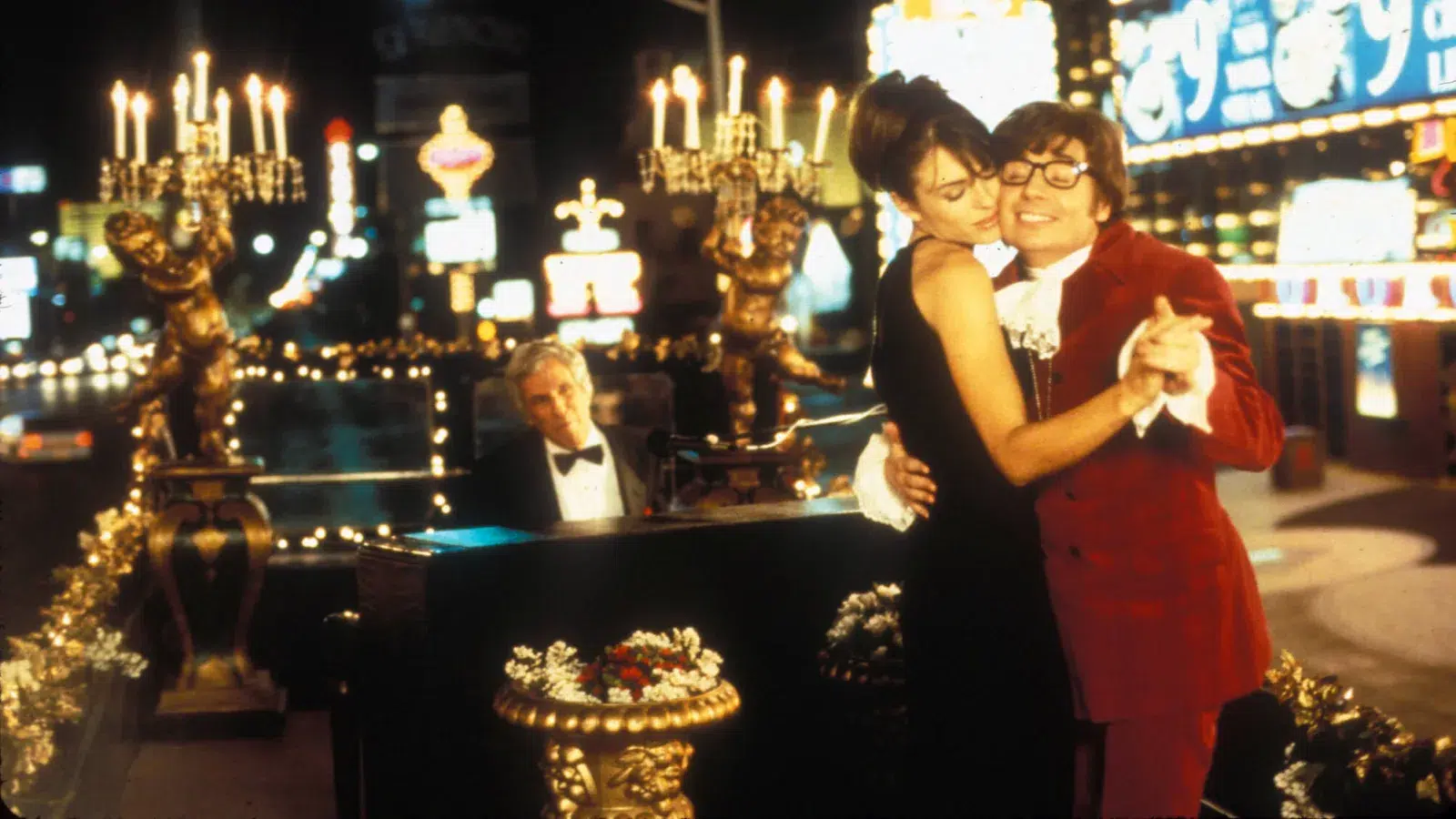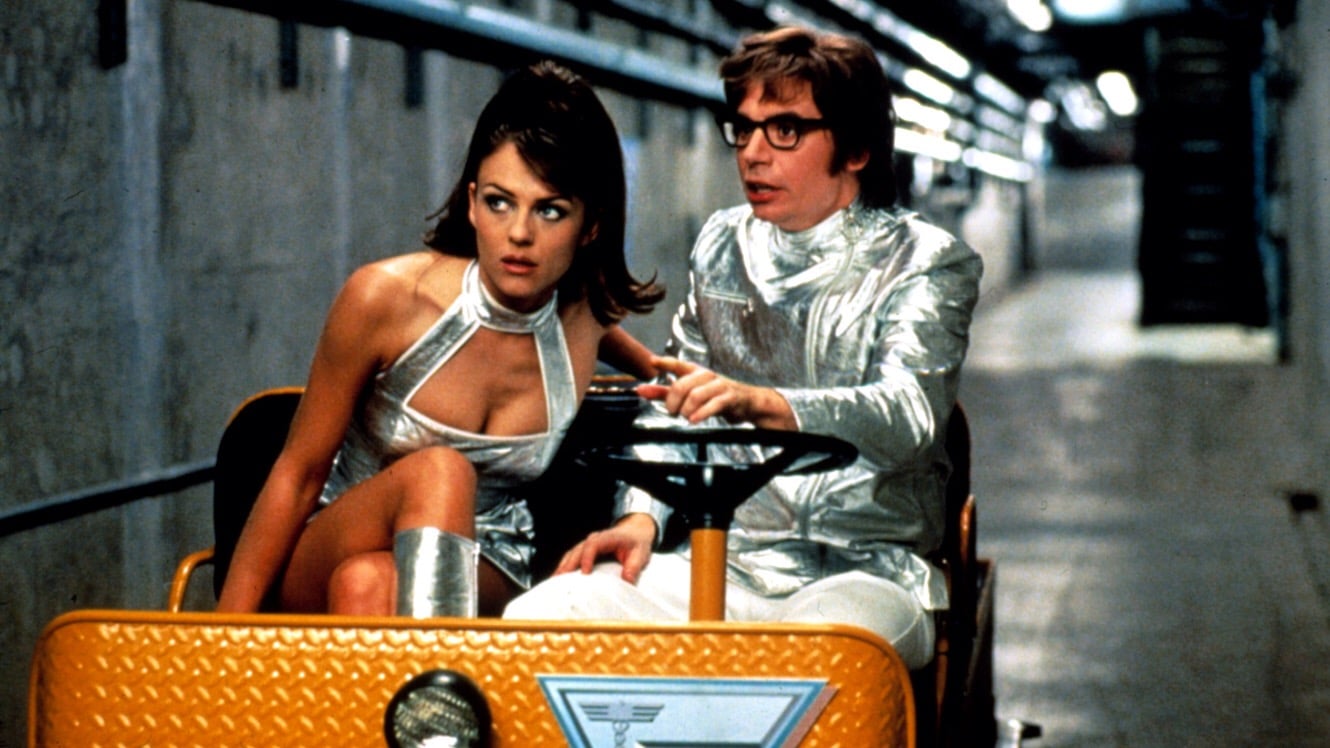Last year, I realised why most parodies don’t work for me. As I see it, it’s an unfortunate truth that the majority of those who work in parody absolutely hate whatever they’re parodying. To me, that’s not really parody – it’s just shouting about how much you dislike something and passing it off as art. Sure, there are exceptions to this – hello, Spaceballs! – but it seems to be standard that those who work in parody consider themselves (or their work, or both) above whatever it is they’re parodying. That might sound a bit harsh, but trust me – as a lifelong Godzilla fan, I’ve endured endlessly flaccid riffing on poor dubbing, low budgets, “cardboard” buildings, the lot – none of which adequately (or accurately) reflect what’s being parodied.
For me, two things are paramount to an effective parody. The first is affection for whatever it is you’re sending up, and the second – perhaps even more crucial – is knowledge of it. Using Godzilla as an example again, this is where so many spoofs fall short: jokes are almost always based on ideas of the character and genre he belongs to, obtained through indirect pop-culture osmosis rather than an intimate knowledge and affection for the character and his films themselves. To this end, parody begets parody, and we usually end up with inaccurate, unfair perceptions of a film, genre, character, or performer. If you don’t believe me, give William Shatner’s dynamic Star Trek performance a go. See beyond the decades of over-the-top impersonations and caricatures, and you’re gifted with the singularly charismatic performance that birthed a pop-culture icon – one that only Shatner could’ve delivered.
All of this leads me to Mike Myers. Despite a slow but steady return to on-screen roles in recent years, Myers has been largely absent for the last decade and a half (I’d be personally remiss if I didn’t mention his standout cameo in Inglourious Basterds, however) – a stark departure following his ‘90s big screen comedy superstardom. Back then – hot off the heels of So I Married an Axe Murderer, Wayne’s World, and its sequel – Myers unleashed his comic pièce de résistance in the form of one of the most endearing characters in the history of screen comedy. Austin Powers: International Man of Mystery (1997) is an overflowing love letter to Swinging Sixties fashion, culture, and sensibilities, an intricately crafted homage to retro spy and espionage fiction, and the beginning of a trilogy – followed by The Spy Who Shagged Me in 1999, and concluding with Goldmember in 2002 – that remains unrivalled in the realm of parody.

Despite being generally regarded as exclusively a 007 spoof, the character of Austin Powers is so much more. On top of liberally borrowing from the likes of Jason King, Adam Adamant Lives!, and the Derek Flint films, Myers also – allegedly, if you believe Elizabeth Hurley – based the character on BBC DJ Simon Dee. Austin may have very traceable pop-culture roots, but it’s the sincere, honest celebration of ‘60s mod culture and groovy goodwill to all running through the trilogy that so defines him, and makes him an unbridled joy to watch.
It’s easy to write off the Austin Powers phenomenon as a dated ‘90s craze, but if you’re shagadelic enough to treat yourself to a rewatch, I reckon you’ll be richly surprised at just how well they hold up. Sure – like practically any comedy more than a decade or two old – there are jokes here and there that may offend (depending on your sensibilities), but the trilogy has aged remarkably well, especially in direct comparison to other studio comedies of their time. Take the moment in International Man of Mystery, in which a drunken Vanessa Kensington (an under-appreciated Hurley) makes a pass at Austin, which he immediately (and sensitively) rebukes on the basis of her inebriation:
Vanessa: “Oh, kiss me.”
Austin: “I can’t, darling”.
Vanessa: “Why not?”
Austin: “’Cause you’re drunk. It’s not right.”
It’s hard to recall a similar exchange in any other contemporary studio comedy (or indeed, one that even acknowledges consent in such a tactful, direct manner). The quietly tender moment that follows – in which Austin recalls Vanessa’s mother, with whom he was in unrequited love – illustrates the key sensitivity that belies his trademark libidinousness, and is crucial to understanding why he has become a beloved cross-generational character.
Indeed, Austin’s resurgence in popularity in recent years is no ironic fad or passive trend – he’s someone who knows exactly who he is and what he’s about. He loves life, is unapologetically himself, and isn’t afraid to be outwardly passionate about what and who he loves, all the while remaining sensitive and mindful to the comfort of others. Isn’t that something we all wish we could be?

The oft-recounted fable of how Myers first conceived the character – that upon hearing Burt Bacharach’s “The Look of Love” on the radio on his way home from ice hockey practice, he wondered, “Where have all the swingers gone?”) illuminates why Austin and his films work where so many others fail. Myers, director Jay Roach, and co-writer Michael McCullers aren’t poking fun at something they hate – through Austin, they’re joyously celebrating something they love through the lens of humour. That something they love isn’t just Bond films (homages to which are still fast, frequent, and very funny), but practically all the big hitters of ‘60s culture, popular or otherwise: mod music and fashion, sexual liberation and freedom, and peace, love, and the jubilant expression of them – and, yes, even the Carry On films.
Myers is utterly, sincerely, and unapologetically steeped in these passions, and the good faith with which he explores and celebrates them makes the Austin Powers trilogy essential, addictive viewing. These films aren’t a sneering, snarky putdown of a time gone by, but a genuinely passionate celebration of all the things that made the ‘60s a world-changing decade. As noted by Myers, Roach, and McCullers in their audio commentary for The Spy Who Shagged Me, Austin Powers isn’t a fish out of water – he’s a fish that brings his own body of water, one that others can’t help but want to swim in. His resurgent popularity and endearing sincerity – over 25 years since his debut – are a testament to that.
I think that is truly groovy, baby. Yeah!

